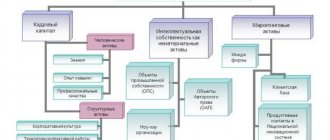1
After 2000, mortgage loans became widespread in the Russian Federation. A mortgage allows you to resolve your housing issue. The loan term usually ranges from 10 to 30 years. A feature of mortgage loans is the encumbrance of property until the debt is repaid. The borrower cannot sell or donate the apartment without the bank's permission. As for the transfer of property by inheritance, other restrictions apply. Let's consider the main types of encumbrances and the procedure for drawing up wills.
What does a will with an encumbrance mean?
Wills of this type imply, along with rights to property, any obligations. Most often this is a loan, but there are other options. The main feature of this type of inheritance is that the heir, if he wants to receive property, must strictly follow the obligations specified in the will.
This system is typical only for inheritance by will. By law, usually only the responsibilities of the credit plan are transferred and only in extremely rare cases, some others.
Arbitrage practice
An interesting decision was made by the district court in Saratov in the summer of 2010. Citizen Bykov G.V. filed a lawsuit against E.I. Urazaeva, demanding to recover from the defendant payment for the use of utilities, excluding payment for repairs and maintenance of living space.
Supporting the claim, Bykov G.V. provided the court with an agreement on his lifelong maintenance to Urazaeva E.I. However, after reading the document, the court made a negative decision, based on the fact that in paragraph 22 of this agreement, citizen Bykov undertakes to pay taxes, repair work and maintenance of the apartment.
Taking into account that all costs under the writs of execution are borne by G.V. Bykov, and the terms of payment for utilities are not specified at all, the court ruled that these costs should be borne by the plaintiff.
Types of wills with encumbrances
There are three main types of wills with encumbrances when the conversation concerns real estate. In our case, apartments.
The standard and most common encumbrance option. The heir undertakes to pay the balance of the debt to the bank for the purchase of real estate. If he refuses, he automatically loses the rights to own this object and other types of property included in the will.
Example: Mikhail bought an apartment with a mortgage. I paid it for 20 years and decided to draw up a will, in which I prescribed the obligations of the heirs to continue making payments. Soon after this he dies. If the heirs plan to take ownership of the property, they are required to take on the loan.
As a rule, this encumbrance option is short-term in nature. The heirs are obliged to continue renting out the apartment to the same persons who rented it at the time of the testator’s death until the end of the contract (usually such an agreement is concluded for a year and is extended, in the absence of claims from both sides, for a similar period).
Example: Mikhail has an apartment that he rents out to his distant relatives for a symbolic sum. The will stipulates the obligation of the heirs to continue to rent out the property at least until the end of the contract. After Mikhail's death, his children become full-fledged owners of the apartment, but in fact they cannot do anything with it and are forced to rent it out to other people.
This is a very broad concept, which may include all sorts of requirements of the testator, some of which may seem absurd. In most cases, this type of burden is the obligation to care for elderly relatives. In other cases, a condition may be set for the transfer of the apartment only along with the pets living in it, which will have to be looked after.
No matter how strange the conditions specified in the will may be, they cannot directly infringe on the freedoms and rights of citizens specified in the Constitution of the Russian Federation. Otherwise, the document may be declared invalid.
Example: Mikhail really wants his daughter to marry the son of his best friend. He states this requirement in the will, directly linking it with the fact of transferring the apartment by inheritance. This requirement does not comply with the Constitution of the Russian Federation and, if the daughter does not want to connect her life with the person specified in the will, she can file a claim in court demanding that the document be invalidated in whole or at least in part.
Refusal of inheritance with encumbrance
It is not necessary to accept an inheritance with an encumbrance. It’s one thing when an apartment purchased with a mortgage is a fairly expensive piece of real estate, for which most of the debt has already been paid at the time of death. In such a situation, it would be more profitable to accept the inheritance and pay the balance. And a completely different option if the property is not too expensive and payments for it have just begun, especially when this apartment is not particularly needed. In this case, it is already easier to abandon the property.
Refusal of inheritance is issued for all property, and not just for specific objects. If the inherited property, in addition to the apartment, includes cars, dachas and land plots and the encumbrance concerns only one of many objects, it is more profitable to accept the inheritance than to abandon everything at once.
How to sell an apartment with an encumbrance
It is very difficult to sell an apartment purchased with a mortgage. You first need to agree on this point with the bank, determine what part of the proceeds will go to repay the debt and what will remain with the seller, and also find a buyer who agrees to such a procedure. In practice, banks are willing to undertake such operations, especially if they see that the loan could potentially become problematic.
The heir will learn about the existence of an encumbrance on an apartment or other property long before the actual receipt of the certificate of inheritance. If you have any doubts about whether to get a new property or not, we recommend that you first discuss this issue at our free consultation. In the future, we will be able to help get out of the situation with minimal losses and maximum benefit for the heir.
FREE CONSULTATIONS are available for you! If you want to solve exactly your problem, then:
- describe your situation to a lawyer in an online chat;
- write a question in the form below;
- call Moscow and Moscow region
- call St. Petersburg and region
Real estate transactions form an integral part of our lives. When buying a home, it is important to know whether there is an encumbrance on it. This will protect you from possible problems with registration of property rights. We will tell you what an apartment with an encumbrance means, who can impose an encumbrance and on what grounds, and how such a restriction is lifted.
Dear readers! Our articles talk about typical ways to resolve legal issues, but each case is unique.
If you want to find out how to solve your particular problem, please contact the online consultant form on the right or call +7 8
It's fast and free!
Universal principle of legal equality
The universal principle of legal equality enshrined in Article 19 of the Constitution of the Russian Federation (equality of all before the law and the court, as well as equality of rights) and the logically determined general legal principle of formal certainty of law presuppose that the law must be clear, precise and unambiguous. In accordance with Part 1 of Article 431 of the Civil Code of the Russian Federation, if the literal meaning of the terms of the contract is unclear, it is established by comparison with other conditions and the meaning of the contract as a whole. If the above rules do not allow determining the content of the contract, the actual common will of the parties must be ascertained, taking into account the purpose of the contract.
In this case, all relevant circumstances are taken into account, including negotiations preceding the contract, correspondence, practices established in the relationship between the parties, business customs, and subsequent behavior of the parties. By virtue of paragraph 3 of Article 30 of the Housing Code of the Russian Federation, the owner bears the burden of maintaining the disputed residential premises. The obligation to pay for residential premises and utilities arises from the owner of the residential premises from the moment the ownership of the residential premises arises.
One of the key issues in the procedure for using residential premises provided under a testamentary refusal or a rent agreement is the question of the fate of the rights of users in the event of termination of ownership of residential premises upon its redemption due to the seizure of a land plot for state and municipal needs in accordance with Article 32 of the Housing Code RF.
What is an encumbrance on an apartment
The apartment is encumbered - what does this mean? An encumbrance is a restriction of the owner’s rights to dispose of residential property.
The owner cannot sell, bequeath or donate housing without the consent of third parties.
Let's look at what encumbrances there are on an apartment. The bulk of the restrictions imposed on a room, apartment or house are registered in Rosreestr, however, there are encumbrances that are not officially recorded.
Restrictions with mandatory registration in Rosreestr include the following types:
- Housing deposit. When purchasing an apartment or house with a mortgage, a mortgage encumbrance arises. The purchased property is pledged to the bank until the owner repays the loan in full. If payments are not received from the debtor, the bank may repossess and sell the property to pay off the debt.
- Rent agreement. This is the official transfer of housing after the death of the owner. According to the rent agreement, the future heir is obliged to support and, if necessary, provide regular physical assistance to the owner of the apartment or house.
- Lease contract. This is the provision of temporary residence rights in an apartment for a fee. If the lease agreement is concluded for more than a year, even after the sale of the apartment, the tenant has the right to stay.
- Guardianship. Additional protection of the rights of minor owners of real estate. Guardianship authorities may prohibit a purchase and sale transaction if the owner of the apartment is unable to provide acceptable living conditions for minors in the future.
- Arrest - confiscation of housing in court or arrest of the owner. In these cases, any transactions with the apartment are prohibited.
- Trust management. This is the transfer by the owner of the rights to manage residential real estate. It is drawn up by a notary and becomes invalid after the purchase and sale of the apartment.
- Easement. By easement we mean the presence of registered persons who have the right to lifelong residence. Even if all previous residents are listed in the house register, the persons who entered into an easement agreement still have the right to live in the apartment. If the easement is not removed before purchasing the real estate, it will have to be challenged in court.
An encumbrance can be placed on an apartment without registering with Rosreestr. It gives the right to live in the apartment even after its sale.
After other persons present rights to housing, the purchase and sale transaction is declared invalid.
Restrictions that do not need to be registered with Rosreestr include:
- Registration in the apartment. The buyer can find out information about the registered ones from the house register.
- Sale of residential property without notifying the shareholder in the real estate, if the apartment belongs to several owners.
- The right of one of the spouses to a share in housing (if purchased during marriage, subject to registration in the name of one of the spouses).
Special cases
Civil cases involving inheritance are often subject to litigation. The testator may specifically not contribute to the legal heir who is entitled to a share in the property. In any proceeding, it is better to go straight to court to legally resolve the issue. But there are cases when you can figure it out on your own, guided by the laws of the Civil Code of the Russian Federation:
- Alexey entered into an inheritance with the burden of paying a life annuity to Mikhail. The owner's children knew that Mikhail regularly received rent from the legatee, and therefore they were in no hurry to help their father. After the death of the owner, claimants to the inheritance appeared who did not want to take into account the fact that the heir appeared during the life of the testator. After Alexey presented in court the documents necessary to confirm his words, the court completely rejected the claim of the blood heirs.
- The owner of the apartment, Evgeniy, did not leave a will for the property, and thus his sons, Grigory and Afanasy, became contenders for the inheritance. The legacy became encumbered by the fact that property worth a large amount is pledged to the bank. Gregory independently renounced the prerogative of inheritance. Afanasy fulfilled his obligations to creditors, assuring them of the fulfillment of payment through the sale of the deceased's possessions and got rid of debt obligations to persons providing collateral, receiving proceeds from the sale of property.
- Alevtina’s middle daughter, Valeria, left her mother alone a long time ago, never inquired about her mother’s health, and did not help in any way. Alevtina decided for herself that she was ready to exclude her from the list of heirs to the property. Having written a testamentary refusal, the woman herself calmed down, making sure that now the daughter who had abandoned her would not encroach on the inheritance and would not be able to carve out for herself a share of the old woman’s savings.
What are the obstacles to encumbrance in inheritance law?
The main problem with a will for an apartment with restrictions is the transfer of encumbrances on the property to the heir.
Attention! The encumbrance hinders those who receive an inheritance under a will.
There are two types of transfer of inheritance rights: by will and by law. If an inheritance is received under a will, the heir will be forced to accept the property in the form in which the owner left it. If the inheritance is formalized by law, the heir can receive part of the property and refuse the inheritance with a limitation.
There are restrictions associated with donating an encumbered apartment. The possibility of alienation of residential property depends on the type of restriction.
For example, is it possible to donate a share in an apartment with an encumbrance? Experts answer in the affirmative, but with a reservation. The owner can issue a deed of gift for such an apartment or a share in it only with the approval of third parties (for example, with the consent of the bank). Traditionally, restrictions have prevented the direct sale of housing. In other words, it is impossible to issue a deed of gift for an apartment with an encumbrance if the donation is not approved by a third party.
Limited disposal of property does not prohibit the owner from registering in an apartment with an encumbrance. Other types of encumbrances require the consent of the interested parties. A ban on any transactions with residential real estate arises only upon arrest or during investigative measures.
The sale of inherited property is carried out with the consent of the interested parties who imposed the restriction, or after the encumbrance is removed.
Registration procedure: stages, accompanying documents
The donor acquires guarantee conditions as a dependent if he is disabled, however, from a stranger. An apartment, house or other property is no longer considered his personal property, but its provision is considered mandatory. Giving real estate after your own death is only possible in the situation of drawing up a will.
The deed of gift obliges visits to government agencies (MFC) with documentation: an inheritance transaction and re-registration of legal possibilities regarding property. The entire procedure takes approximately 20 days. The agreement is drawn up in two copies.
Main points of the document:
- Real estate price.
- Dependent's housing authority.
- Rent payment schedule.
- Grounds for terminating consent.
- Information that the real estate is not collateral.
- A prescription that even in the event of force majeure, the obligations to provide for the testator will not be canceled.
Consequences of a pledge on bequeathed property
At the same time, one object can be pledged to several persons - a joint or shared co-pledger. After the death of the testator, mortgagees have the right to demand that the successors pay off the debts of the testator. If the value of the property is insufficient, creditors have the right to demand that the heirs repay the debts of the testator within the limits of the value of other bequeathed property. When inheriting property, full legal succession applies.
The pledge agreement is drawn up in writing. If the testator dies, the validity of the agreement, as well as the obligation itself, can be extended. Almost always, creditors are ready to enter into a dialogue with legal successors, especially if the collateral is secured by an ongoing transaction - for example, a commercial loan from a bank.
When drawing up a will, the testator should ensure in advance that the notary knows about the presence of a pledge. The official has the right to request information from the register of pledged property, which is maintained by the notary chamber of the relevant region.
What does it mean to receive an inheritance with an encumbrance? This means that, in addition to the heirs, creditors of the deceased owner of the property can claim the property. If a share of the property is pledged, then the right of claim of the pledgee extends to the extent of the share, as well as interest, fines, and penalties for late fulfillment of the obligation.
There is a mandatory notarial form for registering a will. The document itself can be drawn up in free form. It should indicate:
- detailed information about the testator - full name, passport details;
- list of heirs - indicating their full name, place of registration and, if possible, passport details;
- a list of property, including an indication of items encumbered with a pledge;
- title documents for property - extract from the Unified State Register of Real Estate, property certificates, technical documentation.
- information about the size of the share of the bequeathed property - if the bequeathed values are in shared ownership.
If the will is drawn up in a closed form, then it is kept by the notary, but the official does not know its contents. A closed will must be placed in an envelope indicating the date of its execution, full name. witnesses (when drawing up a closed written expression of will, there must be at least two of them).
Pros and cons of the deal
The main advantage of a will with an obligation is the receipt of privileges over living space. However, the disadvantages can cancel out all the positive aspects of ownership powers:
- If the will was made on the condition of an annuity agreement, then the heir must pay a certain amount to the owner before his death and/or provide care. In this case, the death of the donor is the basis for termination of the heir's duties.
- Often the debt encumbering the inheritance exceeds the value of the property itself.
Easement
In addition to collateral, property may be encumbered with an easement - the right to partially use someone else's property. The obligation may be established by contract or court decision. The transfer of a land plot by will does not cancel the easement, but the heir has the right to demand its cancellation or change in its use. An easement can arise even after the plot has been inherited under a will. The legal successors are not able to force the testator to cancel the easement.
For the easement, the testator may receive appropriate remuneration if it is specified in the contract. Unlike a pledge, the duty of the heirs is to ensure that they refrain from actions that impede the exercise of the right to the easement.
Executor of the order
The testator according to Art. 1134 of the Civil Code of the Russian Federation may appoint an executor of a will. He will have to monitor the execution of the testamentary assignment or refusal.
The only condition is the candidate’s consent to become the executor of the will. The powers of the executor are specified in the order. The executor of the will assumes his rights after the death of the testator.
His powers are confirmed by the appropriate certificate. The document is issued by a notary. The form of the certificate is fixed by order of the Ministry of Justice dated December 27, 2016 No. 313.
Rent
The lease right also follows the thing unless the obligation has expired or is terminated at the request of the parties. If the will specifies property that is leased, then the tenant has the right to use it even after the death of the testator. Legal successors do not have the right to raise rent unilaterally. If the property is in long-term lease, then it is advisable to indicate this in the will.
The cost of registering a will of property with an encumbrance is 100 rubles (Article 333.24 of the Tax Code of the Russian Federation). Additionally, you may need to pay for notary services. If the testator has a certificate of pledge, then it must be presented when drawing up the will. If disputes arise with mortgagees, or when preparing a will in general, it is advisable to seek the support of a qualified lawyer.
Expenses
The testator will have to pay a state fee of 100 rubles. The rate is fixed.
However, you will have to pay additionally for technical work. Their value may vary depending on the region of circulation. To calculate costs, you can use the service of the Federal Notary Chamber.
For example, the cost of certifying a will in 2021 in the Altai Territory, according to the service, will be 2,500 rubles.
The amount of the state fee may change when the notary is brought to your home. The rate increases by 1.5 times.











